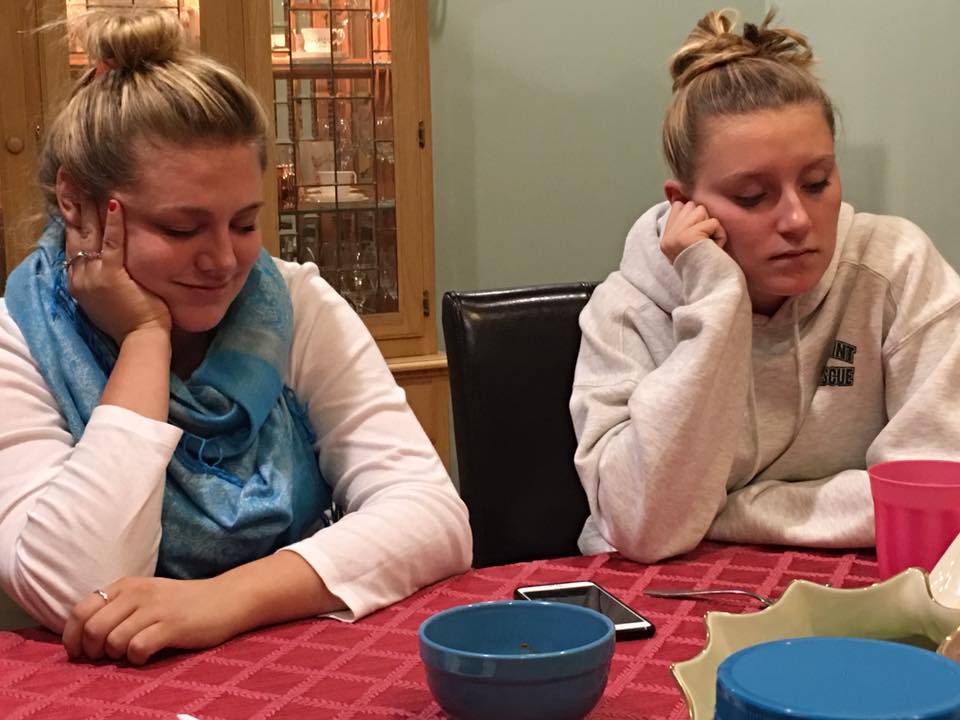
What it’s like watching your grandmother get older
Complicated, heartbreaking, and conflicted
Yesterday my grandmother went to the hospital. It was the second time this month, wherein the last time resulted in her passing out and the medics decreeing she needed a pacemaker, and this time because she’d been consecutively dizzy for the last four days.
Though my grandmother is relatively healthy, takes very few additional prescriptions, and enjoys her margaritas just as joyfully on the weekends as always, she’s still eighty-six, and things change when you age.
The same can be said for my grandmother, on my father’s side, who’s been deteriorating over the past few years due to her Parkinson’s. Some would immediately worry for the safety or longevity of either of these matriarchs, but in my family we smile and say they’re “still kicking.”

Check this cute photo of my aunt and grandma!
It’s a fact of life that as you age and your body slows down, it can’t, won’t or doesn’t do what it used to. But what happens to your mind? Who do you become when you lose your ability to move easily to physical freedom?
My mother, her sisters, our entire family has been puzzling over this for years now – ever since my grandmother moved into my aunt’s house because it was decided she was no longer allowed to drive or she’d be a danger on the road to others. Since the day she moved into my aunt’s house she seems to have regressed, both physically and emotionally. Walking up and down stairs is not as easy for her anymore, but neither is fending for herself to make dinner or get coffee at the nearby 7-11. In fact she’s become petulant, almost antagonistic, to my aunt when she isn’t home to make dinner exactly on the dot, when she needs to ask another family member, other than the one typically dedicated (my uncle), to drive her to get her coffee, or when the family is going out for the night – with or without her.
My grandmother has started to become someone who openly tells us that it is the job of the daughter to take care of the mother in old age and that any small assistance by any of the men in our family is an extreme generosity- obedience and caregiving is expected of the women in our family and never ever dared to be asked of by the men. If you connect this to the fact that my grandmother was a faithful, steadfast housewife of many children in the 1950’s and 60’s (one who made her daughters begin to make their bed at six while she did her son’s laundry to twenty-eight), you can almost understand the way sexism still runs through her being. But I think something bigger is going on here…

My grandmother and her daughters (and some granddaughters)
The anger my grandmother carriers with her now, an anger I literally never saw her have growing up, seems to be connected to her sense of agency – to her ability to control. When she and my grandfather divorced in 1979, my grandmother never remarried and began to live her life, for the first time, free of social constriction. No longer was she expected to be a doting and hardworking mother (all her children were grown), no longer was she tied to being the Susie Homemaker of a husband, no longer did she have any expectations other than the ones she gave herself. Though we’ve rarely spoken of that time, and my grandmother only discusses it in its most basic of details, I believe she loved this. For the first time in her life, at the age of forty-eight, she had freedom.

My grandmother and her sons (the ones she made the bed for for way way waaay too long…)
While she seems to be at the exact opposite side of the spectrum, marrying three times in her life (two divorces and one widowing), she’s voiced similar concerns to my mother. She says she never would have gotten married that last time, in hindsight, because growing to take care of a dying man was not what she wanted to do when, in her fifties and sixties, she still had her health, and her priorities were free to be determined; she says she would have traveled, joined groups, done what she wanted. And one day she sent her husband to a nursing home a few states away and literally did just that – even the binds of love gave way under the pressure of desiring autonomy.

How we females in my family feel about losing any agency
When I take the complexity of what it must have meant to be a woman, wife, and mother in the 50’s, 60’s, and 70’s, I see that so much of both my grandmothers’ life choices were a battle between societal expectations and the newfound freedom of a shifting cultural paradigm. A freedom that once found felt invaluable, and getting old, with its habits of physical regression threatened that agency. I think perhaps that this is why my grandmothers seem to be sliding back into some form of a childhood psyche – why they expect everything to be taken care of for them, and why they are petulant about any choices (spending money, eating unplanned dinners, going out without forewarning). The reigns of control are slipping away from their body at such a rate that they give up their hold on other controls and in their fear of the unknown, of going back from how far they’ve come, resign to anger.
It’s complicated and heartbreaking and conflicted, but to be honest, I don’t blame them – to have lived most of your life waiting for the right place and time to be free, only to be losing it after such a short period due to age is a burdensome thing. I’d be angry too.

Generations of badass females – young and old
